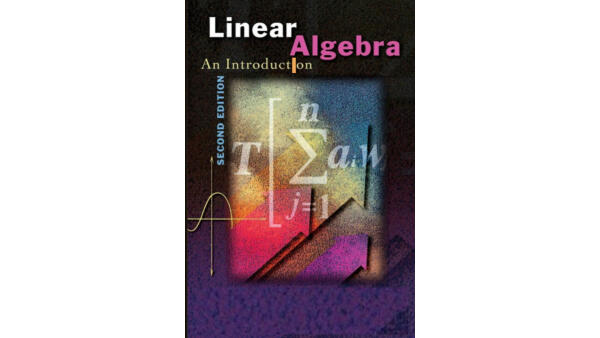
Linear Algebra An Introduction.pdf
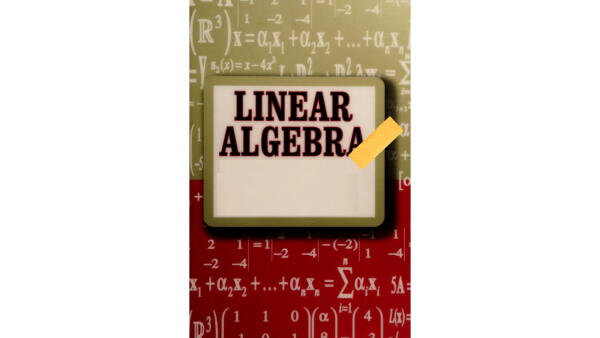
Linear Algebra For B.sc Students
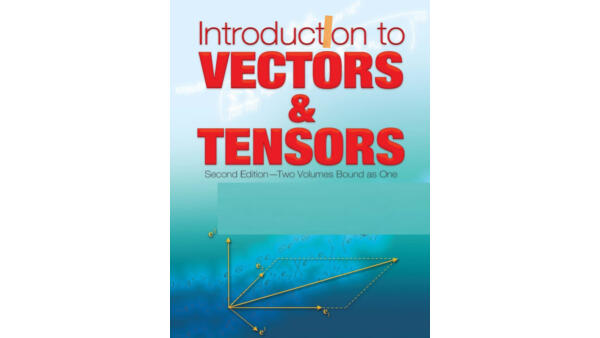
Introduction To Vectors And Tensors
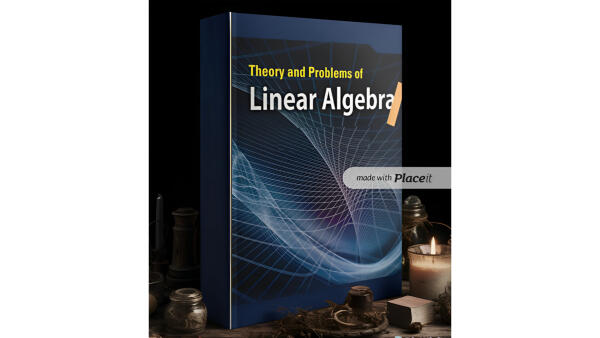
Theory And Problems Of Linear Algebra
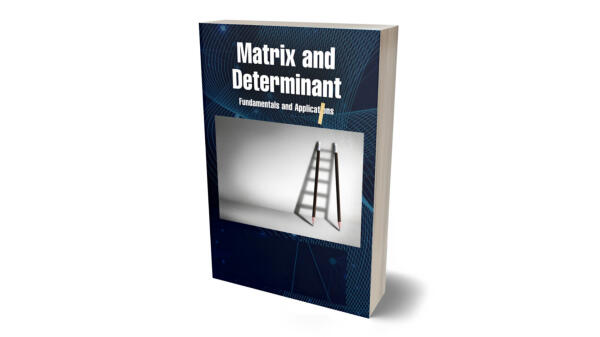
Matrix And Determinant Fundamentals And Applications
"Matrix and Determinant: Fundamentals and Applications" is a concise textbook that expertly covers matrix and determinant concepts. The book provides clear explanations, numerous examples, and practical applications, making it accessible to students and professionals. With a focus on problem-solving and theoretical foundations, this book is ideal for linear algebra courses, engineering, physics, and computer science applications.
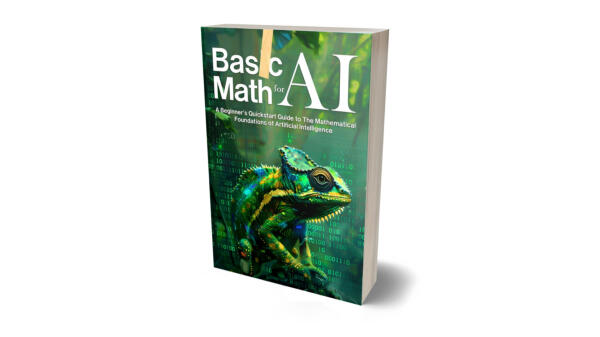
Basic Math For Ai A Beginner’s Quickstart Guide To The Mathematical Foundations Of Artificial Intelligence
"Basic Math for AI: A Beginner’s Quickstart Guide to the Mathematical Foundations of Artificial Intelligence" is a phenomenal resource that's a must-have for every aspiring AI practitioner!<br>This book is a masterclass in mathematical foundations of AI, providing a comprehensive and accessible treatment of the subject that's perfectly pitched for beginners. The author's expertise shines through on every page, as they guide the reader through the intricacies of mathematical concepts with crystal-clear explanations, intuitive examples, and engaging illustrations.<br>What sets this book apart is its unique focus on developing a strong mathematical foundation for AI, covering essential topics such as linear algebra, calculus, probability, and statistics. The author provides a thorough understanding of these concepts and then illustrates how they are applied in real-world AI scenarios, from machine learning and deep learning to natural language processing and computer vision.<br>Key strengths of this outstanding book include:<br>- Comprehensive coverage of mathematical foundations of AI, including all essential topics for beginners- Clear, concise, and accessible writing style that makes complex concepts easy to grasp- Abundant examples, illustrations, and practice problems that reinforce learning and build problem-solving skills- Well-organized and structured content that facilitates easy review and reference- Emphasis on developing practical skills and applying mathematical concepts to real-world AI problems<br>Overall, "Basic Math for AI" is an indispensable resource for anyone seeking to develop a strong mathematical foundation for AI and achieve success in their AI journey. It's a must-have book that will provide you with the knowledge, skills, and confidence to tackle even the toughest AI challenges!
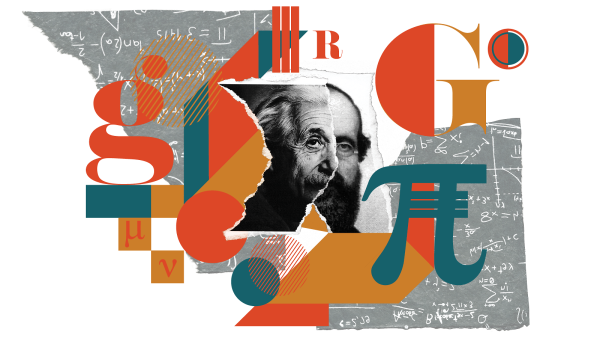
Mathematics For Physics: Essential Mathematical Tools For Graduate Students In Theoretical And Applied Physics
"Mathematics for Physics: A Guided Tour for Graduate Students" is a comprehensive textbook designed to equip physics graduate students with the mathematical tools essential for advanced study in theoretical and applied physics. The book presents core topics such as linear algebra, differential equations, group theory, complex analysis, and differential geometry, all in a physics-oriented context. Its guided approach emphasizes intuition, physical motivation, and practical problem-solving, making abstract concepts more accessible and directly relevant to real-world physical theories.

The Impact Of Artificial Intelligence In The Context Of Daily Life And The Business Environment
**Artificial Intelligence (AI): A Comprehensive Overview and Guide to Learning** Every time you shop online, search for information on Google, or watch a show on Netflix, you’re leveraging one or more features of artificial intelligence. AI applications are ubiquitous and continue to grow. Learning AI, or acquiring foundational knowledge about it, can help you understand how technology enhances our lives through products and services. Additionally, the field offers abundant career opportunities for those who choose to specialize. While learning AI isn’t inherently difficult—given the wealth of educational resources available—it does require a basic understanding of mathematics and statistics. In this post, we’ll provide a holistic view of AI’s advantages and its impact across various domains, along with guidance on how to learn AI and create a structured learning plan. --- ### **What Is Artificial Intelligence, and Why Should You Learn It?** According to Amazon Web Services (AWS), **artificial intelligence (AI)** is a branch of computer science focused on addressing cognitive challenges associated with human intelligence, such as learning, creativity, and image recognition. The goal of AI is to develop self-learning systems that derive meaning from data. These systems can then apply this knowledge to solve new problems in human-like ways. For example, AI can engage in intelligent conversations, generate original images and text, and make real-time decisions based on data inputs. Organizations can integrate AI capabilities into their applications to optimize business processes, enhance customer experiences, and accelerate innovation. --- ### **Why Learn Artificial Intelligence?** Learning AI is particularly critical in our fast-evolving technological era. This technology raises questions about its potential to improve daily life, shape the future, and the importance of understanding and leveraging it in both public and private spheres. Below, we explore answers to these questions: #### **AI Is Revolutionizing Daily Life** AI seamlessly integrates into everyday experiences, offering personalized recommendations and content tailored to individual preferences and behaviors. Voice-activated virtual assistants like Siri, Alexa, and Google Assistant, along with platforms like Nasij Company’s "Itcan" virtual tutor, simplify tasks, improve communication, and streamline information retrieval. In smart homes, AI automates energy consumption, temperature regulation, and adapts to residents’ habits. Healthcare apps leverage AI to analyze personal health data and promote healthier lifestyles. In entertainment, AI enhances gaming experiences and powers augmented reality applications, creating immersive digital interactions. E-commerce platforms use AI for targeted product recommendations, while language translation tools break down communication barriers globally. In finance, AI provides personalized insights for budgeting and investment strategies. In urban planning, AI optimizes traffic flow and public services, and in education, it enables adaptive learning through personalized content. Collectively, AI’s impact across these diverse domains demonstrates its transformative potential in addressing complex societal challenges. --- ### **How to Learn AI and Build a Career in the Field** #### **1. Start with Programming and Mathematical Basics** - **Programming Languages**: Learn Python or R, widely used in AI for their simplicity and robust libraries. - **Mathematics and Statistics**: Focus on linear algebra, calculus, probability, and statistics to understand machine learning algorithms. #### **2. Leverage Online Learning Resources** - **Courses**: Enroll in platforms like Coursera, edX, Udacity, or Khan Academy for structured AI and machine learning courses. - **Books and Research Papers**: Read foundational texts like *Artificial Intelligence: A Modern Approach* and explore arXiv.org for cutting-edge research. #### **3. Build Practical Projects** - Begin with simple projects (e.g., image classification, chatbots) using frameworks like TensorFlow or PyTorch. - Gradually tackle complex projects, such as recommendation systems or natural language processing (NLP) models. #### **4. Network and Join Communities** - Attend AI conferences, workshops, and meetups. Engage with professionals on LinkedIn or GitHub. - Participate in AI communities and contribute to open-source projects. #### **5. Apply for Entry-Level Roles** - Pursue roles like AI engineer, data scientist, machine learning engineer, or research assistant to gain hands-on experience. --- ### **Conclusion** AI is a rapidly evolving field, so commit to lifelong learning. Stay curious, explore emerging tools and techniques, and adapt to new trends. Building a strong foundation, staying updated on industry developments, and proactively honing your skills will position you for success in this dynamic domain. Dedication and persistence are key to thriving in the world of artificial intelligence.
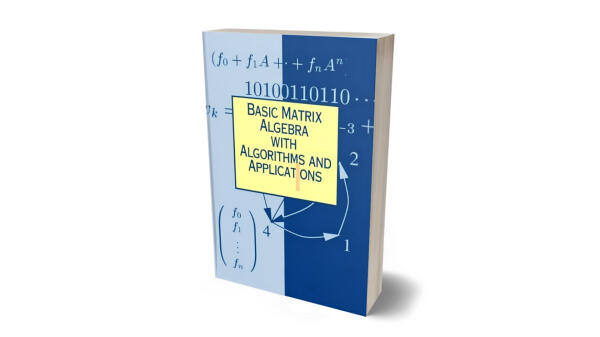
Basic Matrix Algebra With Algorithms And Applications
"Basic Matrix Algebra with Algorithms and Applications" is a tour-de-force in mathematical exposition, offering a crystal-clear and comprehensive introduction to matrix algebra that's simply unmatched!<br>This book is a masterclass in pedagogy, expertly guiding readers through the fundamentals of matrix algebra, from basic concepts to advanced applications. The author's writing style is engaging, concise, and free of unnecessary jargon, making this book an absolute pleasure to read.<br>What sets this book apart is its unique blend of theoretical rigor, algorithmic insights, and practical applications. The author seamlessly integrates numerical methods, computational techniques, and real-world examples to illustrate the power and relevance of matrix algebra in solving problems in physics, engineering, computer science, and data analysis.<br>Key strengths of this outstanding textbook include:<br>- Comprehensive coverage of basic matrix algebra, including vector spaces, linear transformations, eigenvalues, and eigenvectors- Expertly crafted algorithms and computational techniques for solving systems of linear equations, finding eigenvalues and eigenvectors, and performing matrix decompositions- Abundant examples, exercises, and projects that reinforce learning and encourage active engagement- Beautifully rendered graphics and visualizations that facilitate understanding and exploration- Accompanying software and online resources that enhance the learning experience<br>Overall, "Basic Matrix Algebra with Algorithms and Applications" is an indispensable resource for students, instructors, and practitioners seeking to develop a deep understanding of matrix algebra and its applications. It's a must-have textbook that will inspire, educate, and delight!<br>Five stars isn't enough - this book deserves a standing ovation!
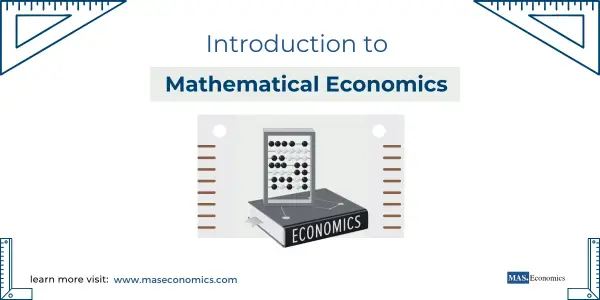
Essential Mathematical Tools For Economists: A Beginner's Guide To Algebra, Calculus, And Optimization
Basic Math for Economists is a foundational textbook that introduces the essential mathematical tools needed to understand and analyze economic concepts. Aimed at students with little prior math background, it covers topics such as algebra, calculus, linear equations, and optimization, all tailored to economic applications. The book emphasizes clear explanations, practical examples, and problem-solving techniques to help students apply math confidently in economics.
